Understanding Therapy Options
Selecting the right therapy option can significantly affect your mental health journey. Let’s take a closer look at the distinctions between individual and group therapy, as well as in-person and online therapy.
Individual vs. Group Therapy
Both individual and group therapy provide effective treatment for various mental health conditions. Here’s how they compare:
Individual Therapy focuses solely on a person’s concerns, emotions, and experiences. It allows for a wide range of therapeutic techniques tailored specifically to the client’s needs (Charlie Health).
Group Therapy is especially useful for providing solidarity among peers facing similar issues. Sessions often focus on specific subjects such as chronic pain, substance abuse, or gender identity. Therapeutic techniques may include role-playing, experiential exercises, and group discussions.
| Therapy Type | Focus | Techniques | Benefits |
|---|---|---|---|
| Individual | Personal concerns | Tailored techniques | Personalized attention |
| Group | Specific issues | Role-playing, group discussions | Peer support, solidarity |
For those needing focused help, individual therapy advantages might be more fitting. On the other hand, explore the impact of group therapy on personal growth for the benefits of a collective setting.
In-Person vs. Online Therapy
The choice between in-person and online therapy depends on your needs and lifestyle. Here’s how they compare:
In-Person Therapy involves face-to-face sessions in a physical setting, promoting a more direct connection and allowing nonverbal cues to be effectively utilized.
Online Therapy provides remote sessions via video calls, chats, or phone calls. This method offers convenience, accessibility, and eliminates geographical barriers, ensuring flexible schedules.
| Therapy Mode | Setting | Duration | Benefits |
|---|---|---|---|
| In-Person | Physical Location | 40 – 60 mins | Direct connection, nonverbal cues |
| Online | Remote | 40 – 60 mins | Convenience, accessibility, flexible scheduling |
Learn more about the advantages of telehealth therapy services and the benefits of online counseling services for mental health.
We at The Hope Wellness Center in Newport, RI, strive to provide comprehensive mental health services tailored to your specific needs. Whether your preference is online or in-person therapy, we have the resources and expertise to support your wellness journey. For more details, visit our sections about how to find the best therapist near you and exploring different types of psychotherapy: which one fits your needs?.
Dive into Therapy Approaches
In our quest to provide comprehensive mental health services, it’s key to understand the various therapy approaches available. Each approach offers unique benefits designed to cater to your specific needs. Here, we explore three well-regarded types: Psychodynamic Therapy, Cognitive-Behavioral Therapy (CBT), and Family Therapy.
Psychodynamic Therapy
Psychodynamic therapy dives deep into your past to find the root of emotional issues. This type of therapy focuses on exploring unconscious processes and understanding how your past influences your present. It delves into emotional patterns and uses the therapist-client relationship as a tool to uncover the underlying issues affecting your current mental state.
Advantages of Psychodynamic Therapy:
- Explores deep-rooted issues
- Long-term commitment (years)
- Focuses on unconscious processes
Key Objectives:
- Understand emotional patterns
- Address past influences
- Build healthier relationships
At The Hope Wellness Center, our experienced therapists are well-versed in the complexities of psychodynamic therapy and work meticulously to help uncover and address deep-seated issues, fostering lasting emotional well-being.
Cognitive-Behavioral Therapy (CBT)
Cognitive-Behavioral Therapy (CBT) offers hands-on strategies for tackling negative thoughts and behaviors today. It’s a short-term approach focusing on identifying and changing negative thought patterns and behaviors to improve your current situation (Counseling Center Group).
Advantages of CBT:
- Practical strategies
- Short-term commitment (5 to 20 sessions)
- Focuses on present issues
Key Objectives:
- Change negative thought patterns
- Improve behavior and coping mechanisms
- Set and achieve specific goals
For a deeper dive into whether CBT is right for you, read our detailed article on understanding cognitive behavioral therapy (CBT): is it right for you?.
Family Therapy
Family Therapy is designed to address issues within the family unit. It focuses on understanding and improving communication patterns, resolving conflicts, and fostering a healthy family dynamic. The therapist works with multiple family members simultaneously to highlight and address relationship patterns that impact the family unit as a whole.
Advantages of Family Therapy:
- Improves communication
- Addresses family conflicts
- Strengthens family bonds
Key Objectives:
- Enhance family dynamics
- Resolve ongoing conflicts
- Foster mutual respect and understanding
The role of family therapy in healing relationships cannot be understated. Learn more about how this approach can benefit your family in our article on family therapy.
In understanding the different types of counseling services, we utilize a variety of therapeutic techniques and models tailored to your unique needs. For more information on types, benefits, and how to find the right therapist, explore these internal resources: how to find the best therapist near you and the benefits of online counseling services for mental health.
Benefits of Different Therapies
Understanding the benefits of different therapies can help you decide which therapy best suits your needs. At The Hope Wellness Center in Newport, RI, we offer comprehensive Adult Psychiatric Services, Medication Management, Child & Adolescent Psychiatric Treatment, Mental Health Therapy, Substance Use Treatment, and Holistic Services. Below, we explore the advantages of group therapy, individual therapy, and online therapy.
Group Therapy Advantages
Group therapy involves multiple participants working through their issues with the guidance of a licensed therapist. It offers a unique set of benefits:
- Peer Support: One of the primary advantages of group therapy is the sense of solidarity and support participants gain from their peers. This mutual support can be particularly uplifting and encouraging.
- Different Perspectives: Participants benefit from hearing different viewpoints and coping strategies, which can provide fresh insights into their own situations.
- Cost-Effective: Group therapy sessions are often more affordable than individual therapy sessions, making it accessible for more people.
- Enhanced Social Skills: Participation in group therapy improves communication and social skills, which can be beneficial in other areas of life.
More about the impact of group therapy on personal growth can be found here.
Individual Therapy Advantages
Individual therapy involves one-on-one sessions with a therapist, providing a more intimate setting for addressing personal issues. Here are some key benefits:
- Personalized Attention: The therapist can focus solely on the individual, tailoring interventions specifically to their needs.
- Confidentiality: Individual therapy provides a private setting, which may make it easier for the person to open up about sensitive issues.
- Deep Exploration: The format allows for a more in-depth exploration of personal issues, facilitating deeper healing and understanding.
- Flexible Pacing: The pace of therapy can be adjusted according to the individual’s readiness and comfort level.
For additional insights on the advantages of individual therapy, visit our page on exploring different types of psychotherapy.
Online Therapy Benefits
Online therapy, also known as virtual therapy, has become increasingly popular due to its convenience and accessibility. Benefits include:
- Accessibility: Online therapy eliminates geographical barriers, making it possible for individuals in remote areas to access therapeutic services (Psychology.org).
- Scheduling Flexibility: Online therapy offers more flexible scheduling options, which can be particularly beneficial for those with busy or unpredictable schedules.
- Comfort: Sessions can be conducted from the comfort of one’s home, which can help individuals feel more relaxed and open during therapy.
- Multiple Communication Modes: Online therapy allows for video calls, chats, or phone calls, providing various ways for individuals to engage with their therapists.
- Increased Confidentiality: Online platforms often offer enhanced privacy, allowing individuals to seek help discreetly.
You can read more about the benefits of online counseling services here.
| Therapy Type | Key Benefits | Best For |
|---|---|---|
| Group Therapy | Peer Support, Different Perspectives, Cost-Effective, Enhanced Social Skills | People seeking support from others with similar issues |
| Individual Therapy | Personalized Attention, Confidentiality, Deep Exploration, Flexible Pacing | Individuals needing focused, one-on-one interaction |
| Online Therapy | Accessibility, Scheduling Flexibility, Comfort, Multiple Communication Modes, Increased Confidentiality | Those in remote areas or with busy schedules |
The Hope Wellness Center is committed to providing diverse therapeutic services to meet the unique needs of each individual. Whether you are interested in group therapy, individual therapy, or online sessions, we are here to support your journey towards mental wellness.
For more information on how to choose the right mental health therapist, click here.
Tailoring Therapy to Needs
At The Hope Wellness Center in Newport, RI, we understand the importance of offering a wide range of counseling services to meet the unique needs of our clients. Here, we delve into three specific types of counseling services: substance abuse counseling, marriage and family counseling, and career and educational counseling.
Substance Abuse Counseling
Substance abuse counseling is vital in addressing and treating substance use disorders. Individual therapy is the most widely used form of treatment and often includes behavioral therapies like cognitive-behavioral therapy (CBT), motivational interviewing, and contingency management (American Addiction Centers). Group therapy is equally effective, providing the additional benefit of peer support, which can enhance commitment to maintaining abstinence.
| Therapy Type | Key Techniques | Benefits |
|---|---|---|
| Individual Therapy | CBT, Motivational Interviewing | Personalized attention, tailored treatment plans |
| Group Therapy | Peer Discussions, Shared Experiences | Peer support, enhanced commitment to sobriety |
Explore more about different therapy approaches in our article on understanding cognitive behavioral therapy (CBT): is it right for you?.
Marriage and Family Counseling
Marriage and family counseling at The Hope Wellness Center aims to develop and maintain healthy and functional family relationships. This type of counseling addresses psychological, behavioral, and emotional issues that cause family problems. Subtypes like Brief Strategic Family Therapy focus on changing interaction patterns between family members and have been particularly effective (Medical News Today).
For an overview of what to expect, visit our article on what to expect from marriage counseling sessions.
| Counseling Type | Focus | Outcomes |
|---|---|---|
| Family Therapy | Interaction Patterns, Behavior Modification | Reduced conflicts, improved family dynamics |
| Marriage Counseling | Communication, Conflict Resolution | Strengthened relationships, enhanced mutual understanding |
Learn more about the benefits of family therapy in our article on the role of family therapy in healing relationships.
Career and Educational Counseling
Career and educational counseling provides guidance on exploring diverse career options, making informed decisions, and navigating career transitions. This type of counseling can help in adapting to new workplace environments and managing career development challenges.
| Counseling Type | Key Services | Benefits |
|---|---|---|
| Career Counseling | Career Path Exploration, Decision Making | Clear career goals, successful transitions |
| Educational Counseling | Academic Advising, Skill Development | Improved academic performance, skill enhancement |
For more about choosing the right therapy for your needs, read our article on exploring different types of psychotherapy: which one fits your needs?.
At The Hope Wellness Center, we are committed to offering personalized and comprehensive counseling services for a variety of needs. Whether you’re dealing with substance abuse, family issues, or career challenges, our professional and empathetic team is here to help you through your journey. For further assistance, check out our guide on how to find the best therapist near you.
The Role of Therapists
Understanding the different types of counseling services helps us provide the most effective care. This section covers the distinctions between therapists and counselors, various therapeutic techniques, and specific therapy models for substance use.
Therapist vs. Counselor
Therapist and counselor are terms often used interchangeably, but they have distinct differences. A counselor typically requires a bachelor’s degree and focuses on providing guidance, support, and practical solutions to clients dealing with specific life challenges. Conversely, a therapist usually needs a master’s degree and a license to practice. Therapists engage in deeper psychological work, addressing complex emotional and psychological issues to foster long-term healing (Medical News Today).
| Role | Education Level | Focus Area |
|---|---|---|
| Counselor | Bachelor’s Degree | Guidance and Support |
| Therapist | Master’s Degree and License | Deep Psychological Work |
Our team at The Hope Wellness Center includes both therapists and counselors to address a wide range of needs from mental health therapy to substance use treatment.
Therapeutic Techniques
Therapists use various techniques to help clients achieve their goals. These methods often include:
- Cognitive-Behavioral Therapy (CBT): Focuses on changing negative thought patterns.
- Psychodynamic Therapy: Explores the influence of past experiences on present behavior.
- Family Therapy: Works on resolving family conflicts and improving communication.
- Mindfulness Integration: Uses mindfulness practices to enhance well-being (an overview of dialectical behavior therapy (dbt) techniques).
By incorporating these techniques, we ensure clients receive personalized care tailored to their unique situations.
Therapy Models for Substance Use
For treating substance use, various therapy models are employed. These models can be combined to address co-occurring mental health disorders.
| Group Model | Focus |
|---|---|
| Psychoeducational Groups | Provides information about substance use. |
| Skills Development Groups | Enhances coping and social skills. |
| Cognitive-Behavioral Groups | Addresses underlying cognitive distortions. |
| Support Groups | Offers peer support and encouragement. |
| Interpersonal Process Groups | Focuses on interpersonal relationships. |
These models, along with individual therapy benefits and group therapy advantages, form a comprehensive approach to substance use treatment.
To explore more about therapy and counseling services, visit our article on how to find the best therapist near you or learn about the benefits of integrating mindfulness into therapy.
The Path to Recovery
The journey to recovery encompasses various methods designed to address mental health and substance use issues effectively. At The Hope Wellness Center in Newport, RI, we offer comprehensive services and support tailored to meet the individual needs of our clients. This section discusses key strategies such as building strong family dynamics, effective intervention strategies, and therapy for mental health and substance use.
Building Strong Family Dynamics
Family therapy aims to look outside an individual and take a holistic approach during treatment, effectively addressing family-related issues. Whether tackling substance abuse, anger management, or other systematic problems, family therapy involves multiple family members and support networks, enhancing long-term recovery chances.
Key benefits of family therapy include:
- Improved communication
- Reduced anger and resentment
- Enhanced conflict resolution techniques
- Building peace and safety within the family unit
- Healthier relationships and interactions
Research suggests positive outcomes from family therapy, such as reducing internal and external problems in adolescents, promoting effective parenting methods, and fostering closer family relationships.
For more insights into family therapy’s role, visit our article on the role of family therapy in healing relationships.
Effective Intervention Strategies
Intervention strategies play a vital role in addressing various issues, from substance use to behavioral challenges. They involve structured and organized meetings facilitated by a trained professional, focusing on communicating concerns and urging the individual to seek treatment.
Key intervention techniques include:
- Motivational interviewing
- Cognitive-behavioral strategies
- Contingency management
- Family-based approaches
These techniques emphasize the importance of early intervention and professional guidance to navigate the complex process of recovery. Visit our page on how to support a loved one in therapy for practical tips and resources.
Therapy for Mental Health and Substance Use
Individual therapy remains the most utilized form of treatment for substance use disorders, helping individuals uncover the root of their addiction. This therapy includes approaches like cognitive-behavioral therapy, motivational interviewing, and contingency management, each designed to address specific aspects of an individual’s struggles.
Group therapy sessions focus on co-occurring mental health disorders such as depression, anxiety, and personality disorders, offering individuals insight, guidance, and comfort under a therapist’s supervision. Group therapy can be particularly effective for long-term recovery due to peer support and shared experiences.
To learn more about the different types of therapies, explore our article on exploring different types of psychotherapy: which one fits your needs?.
| Therapy Type | Focus Area | Session Duration | Frequency |
|---|---|---|---|
| Individual Therapy | Personal struggles, emotions, root of addiction | 40-60 minutes | Weekly or more |
| Group Therapy | Specific issues like substance abuse, co-occurring disorders | Up to 90 minutes | Weekly or more |
| Family Therapy | Family dynamics, communication, conflict resolution | 60-90 minutes | As needed |
By integrating these approaches, The Hope Wellness Center aims to provide personalized and effective treatments to empower our clients on their journey to recovery. For more information on choosing the right therapeutic approach, visit our guide on how to choose the right mental health therapist.










